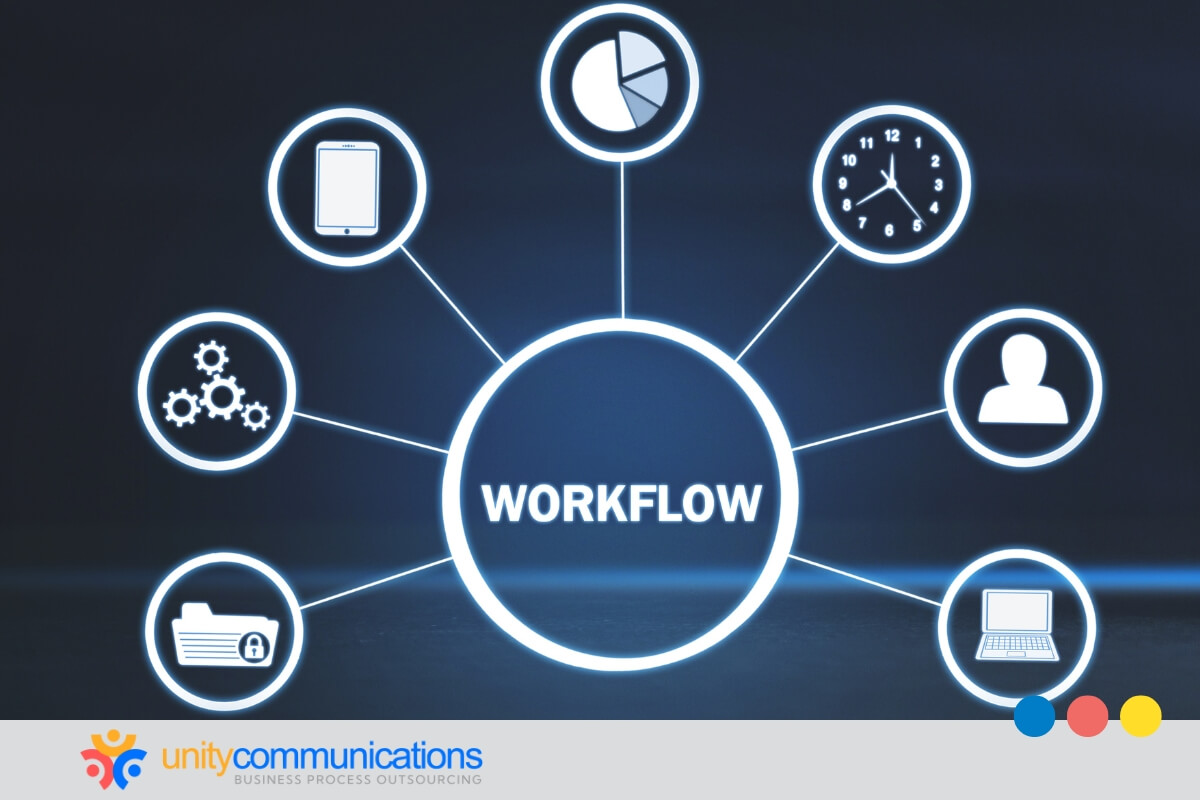IN THIS ARTICLE
Table of Contents
Artificial intelligence (AI) is evolving, and it’s now capable of handling reception tasks with surprising accuracy. The question is: which AI virtual receptionist offers the best customization options?
This question matters because customization determines how well your virtual receptionist reflects your brand. Tone, script personalization, customer relationship management (CRM) integration, workflow automation, and system flexibility are what set the top AI receptionists apart from the rest.
In this article, we’ll compare leading AI virtual receptionist platforms and explore strategies to help you choose the best. Discover how to select an AI receptionist that feels uniquely yours.
Which AI virtual receptionist offers the best customization options?

If you’re trying to determine which AI virtual receptionist offers the best customization options, it helps to start by looking at today’s top contenders.
But before that, let’s define an AI virtual receptionist. It is a system created to manage incoming calls, messages, and scheduling tasks while sounding and acting like a real human assistant. These solutions use conversational AI to answer inquiries, route calls, take messages, and even personalize interactions based on customer data.
The demand for this kind of intelligent automation is growing quickly. According to Grand View Research, its global market could reach $14.10 billion by 2030. Meanwhile, 78% of companies now use AI in at least one business function.
To help you decide which AI virtual receptionist offers the best customization options, here are ten standout platforms known for flexibility and advanced AI capabilities.
1. Unity Communications
Unity Communications is a hybrid business process outsourcing (BPO) and AI solutions provider. It offers AI virtual receptionists and AI voice agents as part of its AI Agent lineup, alongside AI IVR and customer service agents. The company combines intelligent automation with human oversight to create scalable, consistent customer experiences.
Here are its customization options:
- Create consistent, natural-sounding greetings aligned with your brand identity.
- Automate call routing paths, transfers, escalation rules, and scheduling decisions.
- Configure which questions the AI answers autonomously and when to escalate to humans.
- Seamlessly hand off from AI to human agents when caller issues escalate beyond the AI’s scope.
- Refine AI behavior over time based on analytics and feedback loops between human and AI agents.
Why it stands out
Unity Communications’s strength is in its hybrid model. The AI augments rather than fully replaces human agents. The company emphasizes branded voice cloning and full deployment services as it aims for a high degree of polish and alignment with your brand.
Because Unity Communications offers full BPO strategic partnerships, the AI receptionist can fit into a broader outsourcing strategy.
Best for: Mid-to-large businesses or BPO clients who want a premium, brand-consistent AI receptionist built as part of a broader AI and human operations strategy. It is particularly suited for those who want vendor-led customization and a well-embedded AI receptionist in the BPO process.
Unity Communications is a contender when you value deep branding control, hybrid AI-human workflows, and a deployment partner who handles the heavy lifting.
2. ai
Smith.ai is a hybrid service that combines AI virtual receptionist capabilities with live human support. It handles incoming calls, lead intake, multilingual answering, chat and SMS follow-ups, payment collection, and integration with CRMs and other tools.
Here are its customization options:
- Define “intake” or “lead qualification” questions to gather custom data.
- Set up caller-type workflows that route different types of callers, such as new leads, existing clients, and vendors, according to scripts you design.
- Choose from a range of conversational voices, adjust speaking speed, tone, etc.
- Select bilingual support, custom voice prompts, and white-glove implementation if your business needs tailored configurations.
Why it stands out
What makes Smith.ai stand out is its combination of AI and human fallback, which helps with reliability for complex or sensitive calls. Its large number of integrations, with 7,000+ business tools via Make, allows deep embedding into existing workflows.
It also offers extensive onboarding support, voice customization, caller routing, transcript and analytics features, and scripts that match your brand voice.
Best for: Businesses that need an AI receptionist with customizable scripts, branding control, and human oversight for complex calls.
If you’re trying to decide which AI virtual receptionist offers the best customization options, Smith.ai is a strong candidate whenever you need robust scripting, brand-aligned voice and tone, and seamless integration with your other tools, along with human backup for edge cases.
3. My Al Front Desk
My AI Front Desk is an AI-powered virtual receptionist service that automates phone answering, scheduling, Q&A over calls, and sometimes text. It handles missed calls and appointments using booking links, integrates with booking or scheduling tools, and provides analytics and call transcripts.
With it, you can:
- Customize greeting phrases and call scripts to reflect your brand’s tone.
- Train the AI’s knowledge base with business-specific FAQs and instructions.
- Configure workflows for routing, SMS responses, or appointment scheduling.
- Select from multiple voices and languages for a personalized caller experience.
- Integrate with popular scheduling tools, including Calendly, Vagaro, or Booksy.
- Connect to thousands of apps through Zapier to trigger automations.
- White-label the interface with your logo and colors for brand consistency.
Why it stands out
My AI Front Desk shines for its simplicity, affordability, and broad integration range. It offers meaningful customization for small businesses without requiring technical expertise or developer resources.
Best for: Small and midsize businesses looking for a cost-effective AI receptionist that can adapt to their branding and booking systems.
If you’re evaluating which AI virtual receptionist offers the best customization options, My AI Front Desk delivers an impressive balance of personalization, automation, and accessibility.
4. AircallVirtual Receptionist
Aircall’s AI Voice Agent functions as a virtual receptionist within its cloud phone system. It can answer questions, capture caller details, handle multilingual conversations, and hand off complex calls to human agents. It’s built for teams that already use modern call routing or CRM tools and want to layer AI on top.
Customization options include:
- Multiple AI voice options and tones, such as friendly or formal
- Personalized greetings, transfer messages, and company introductions
- Custom intake questions to collect caller details
- Multilingual workflows
- Editable knowledge base entries for more accurate answers
- Smart handoff rules to determine when calls are transferred to humans
- Call routing within Aircall’s broader communication stack
Why it stands out
Aircall offers seamless integration between its AI voice agent and its full telephony platform. Its multilingual support and fine-tuned voice controls make it an attractive choice for companies with diverse customer bases.
Best for: Teams that already use Aircall or want a scalable, multilingual AI receptionist integrated into their existing phone systems.
When evaluating which AI virtual receptionist offers the best customization options, Aircall’s AI Voice Agent is ideal if you want strong voice flexibility, language options, and integration within a robust phone infrastructure.
5. CloudTalkAl Receptionist
CloudTalk’s AI Receptionist is an intelligent call-handling solution built into its cloud-based contact center platform. Designed for small teams and enterprise-level users, it automates inbound calls, routes customers to the right departments, and personalizes caller experiences through smart data use.
You can:
- Customize greetings and call routing logic through CloudTalk’s intuitive drag-and-drop flow builder.
- Record or upload branded voice greetings to maintain your company’s tone.
- Set up department- or region-specific call flows for personalized routing.
- Integrate directly with CRMs such as HubSpot, Pipedrive, and Salesforce.
- Adjust AI behavior based on call history or customer data.
- Configure after-hours responses and voicemail workflows.
- Access real-time analytics and call logs to refine scripts and flows.
Why it stands out
CloudTalk’s strength lies in its flexibility. Its flow designer allows full control over call experiences without needing technical skills. Combined with strong CRM integrations and analytics, it helps you align every customer touchpoint with your brand standards.
Best for: Teams that value visual workflow control and easy integration with existing sales or support tools.
If you’re still exploring which AI virtual receptionist offers the best customization options, CloudTalk deserves attention for its user-friendly design tools and ability to tailor call flows around real customer data.
6. RingCentral Al Receptionist
RingCentral’s AI Receptionist is part of its unified communications suite, offering intelligent call routing, voice recognition, and dynamic responses for inbound and internal calls. It is built to scale with global organizations as it combines automation with enterprise-grade communication management.
Its outstanding features include:
- Multi-level IVR trees with department- or region-specific scripts
- Custom greetings that reflect brand tone and language
- Business-hour schedules and call routing rules
- Text-to-speech or recorded audio in multiple languages
- Integration with CRMs and helpdesk systems such as Salesforce and Zendesk
- Automation of internal transfers, voicemail, and follow-up notifications
- Analysis of call metrics
- Refinement of routing logic based on performance data
Why it stands out
RingCentral’s enterprise focus means it supports complex call environments, which is great if you have multiple locations or high call volumes. Its detailed IVR customization and reporting tools make it a powerful choice for fine-tuning caller experiences.
Best for: Enterprises or multi-location businesses that need a robust, highly configurable receptionist within a full communication ecosystem.
RingCentral delivers enterprise-grade control with flexibility that scales globally.
7. Dialpad AIReceptionist
Dialpad AI Receptionist, powered by its proprietary Dialpad AI, manages inbound calls, captures caller intent, and automates call routing in real time. It’s built into Dialpad’s cloud communication platform, giving you access to natural language processing, live call summaries, and integration with popular business tools.
Here are its customization options:
- Personalized greetings, scripts, and voicemail messages for each department
- Routing rules based on business hours or caller intent
- AI-powered transcription and keyword detection for faster responses
- Integration with CRMs such as Salesforce, HubSpot, and Zendesk
- Customization of call handling for different teams or campaigns
- Access to analytics dashboards to measure call trends and performance
- Language and tone settings for consistent customer interactions
Why it stands out
Dialpad’s AI offers real-time voice intelligence that provides insights that refine scripts and improve customer engagement over time.
Best for: Businesses that want AI-driven insights and automation on a single communication platform.
Which AI virtual receptionist offers the best customization options? In this case, Dialpad stands out for combining conversational AI with actionable analytics that continuously improve customer interactions.
8. GoToConnect Virtual Receptionist
GoTo Connect’s AI Receptionist is part of their unified communications platform. It offers a virtual receptionist service that works 24/7, handling inbound calls, routing callers, and providing support through knowledge base articles or frequently asked questions (FAQs). It also captures key caller information via custom forms.
As a user, you can:
- Set the greeting message that plays at the start of every call.
- Choose voice, tone, and default language, including accents for the AI receptionist.
- Build custom conversation flows or call routing rules via a dial plan editor.
- Set up information capture forms to collect email or reason for calling and integrate those into call transfers.
- Knowledge base or FAQ articles for collections to enable automatic responses for frequent questions.
- Track metrics including number of calls, calls escalated vs. handled by the AI, average talk time, etc.
Why it stands out
GoTo Connect’s offering is strong because it combines flexibility in voice, flow, and language customization with robust tools such as knowledge bases and information capture. The ability to tailor call flow rules and escalate to a person or extension when needed gives it a level of control not always available in simpler systems.
Also, GoTo provides good observability via analytics, so you can fine-tune the receptionist over time.
Best for: Businesses that want an AI receptionist deeply integrated into their phone system or multilingual or multi-accent options. It is especially ideal for companies that expect varying call types and want detailed metrics.
When you’re comparing which AI virtual receptionist offers the best customization options, GoTo Connect shines if you need detailed control over voice, flows, and language, plus data-driven oversight of the receptionist’s performance.
9.OpenPhoneAl Receptionist
OpenPhone offers an AI agent called Sona that acts as a virtual receptionist. It answers incoming calls when the team is unavailable, responds to FAQs, collects lead or caller information, and summarizes or organizes those interactions in the OpenPhone workflow.
With the platform, you can:
- Change Sona’s introduction or greeting to match your brand’s personality or conversational style.
- Train Sona via knowledge pages, where you can upload data about your business, services, hours, pricing, and FAQs so that common questions are answered automatically.
- Use a visual call flow builder by setting up menus, schedules, team routing, etc., without code.
- Capture and summarize conversations by recording, storing, and organizing calls handled by Sona.
- Filter or view Sona-handled calls in the workflow for follow-up or context.
- Integrate with OpenPhone’s platform as an add-on, so managing call flows, FAQs, and caller info stays within Phone.
Why it stands out
The knowledge-based training and flow builder allow meaningful customization, while still being simple to set up. Its integration with OpenPhone ensures that caller information, messaging, and calls live in the same workspace.
Best for: Businesses that want a receptionist solution that works with an existing phone workflow and wish to automate FAQ and leads without needing to build full enterprise-scale systems. It is also helpful for teams that care about tight integration and ease of use.
OpenPhone’s Sona is a strong pick for those who want built-in workflow automation, brand-aligned greetings, and FAQ handling without complex setup.
10. AnswerConnect
AnswerConnect is a virtual receptionist and answering service that uses real people to handle inbound calls, live chat, lead capture, appointment scheduling, and message forwarding. It operates 24/7, offers a client portal and mobile app dashboard, and supports script writing and call routing per client needs.
Customization options include:
- Custom call scripts so receptionists answer calls in your style
- Call flows and routing, such as forwarding to the correct person or team or handling different types of calls, depending on time, caller, or requirement.
- Appointment booking using your own calendar or platform, including Setmore
- Lead qualification and capture to prioritize or follow up on promising opportunities.
- Returning-caller recognition to handle repeat customers or frequent callers with context
- Client-facing portal and mobile app to view messages, see usage metrics, adjust settings, or update scripts
Why it stands out
AnswerConnect is powerful because it is deeply human-driven. Real agents can follow your custom scripts, adapt to your brand’s voice, and recognize returning callers to give a more personalized experience.
Its 24/7 live support, plus the flexibility of customizing routing, script content, appointment scheduling, and lead follow-up, make it robust. The customer portal gives visibility and control.
Best for: Businesses that want the assurance of human interaction combined with customization, especially those whose calls vary in type, where tone and caller experience matter, or who want to maintain a strong brand identity in every customer engagement.
If you’re weighing which AI virtual receptionist offers the best customization options, AnswerConnect is a solid choice for those who want high levels of script control, human responsiveness, and client-side access to metrics and call flows.
How to find the right AI virtual receptionist for your business
Once you know what’s available, the next step is to determine which AI virtual receptionist offers the best customization options for your business. With many options promising flexibility and smart automation, knowing which to evaluate can make all the difference.
This section shares strategies to help you choose:
1. Assess scalability and support
A good place to start when deciding which AI virtual receptionist offers the best customization options is to look at scalability and support. Customization means little if the system can’t keep up as your business grows, or you’re left troubleshooting alone when things go wrong.
Scalability keeps your AI receptionist adaptable to changing call volumes, user roles, and requirements. Your customer base will expand, and the platform should allow you to:
- Add users.
- Integrate new communication channels.
- Extend coverage to different departments without disruptions.
Look for systems that offer flexible pricing tiers, cloud-based infrastructure, and usage-based scaling, so your receptionist can evolve alongside your operations.
Additionally, a reliable vendor provides 24/7 technical assistance, onboarding guidance, and ongoing optimization as you fine-tune custom scripts, workflows, or integrations. It’s worth checking whether they offer dedicated account management or access to an AI success team for continual improvement.
Which AI virtual receptionist offers the best customization options? It depends on its scalability and support. Without these factors, a customizable AI agent could end up limiting your customer experience.
2. Evaluate integration capabilities
A highly customizable system should be able to connect smoothly with the tools and workflows your team already relies on.
Look for a virtual receptionist that integrates with your CRM, phone system, calendar app, and helpdesk software. Integrations make customer data flow automatically across your platforms to reduce errors and improve responsiveness.
Seamless integration also gives your team full visibility into every customer interaction, starting from the first call to post-sale follow-up, without manual updates or switching between apps.
Finally, strong integration capabilities enhance your ability to personalize experiences. When an AI receptionist can instantly access caller history, service records, or upcoming appointments, it can tailor responses in real time.
3. Check for branding flexibility
A crucial but overlooked element in deciding which AI virtual receptionist offers the best customization options is branding flexibility. A receptionist that sounds generic or misaligned with your voice can undermine your brand more than help it.
Here are questions to ask to assess branding flexibility in a prospective AI receptionist:
- Can you choose from multiple voice personas, such as formal, friendly, and energetic?
- Can the vendor clone or closely match your brand’s tone or the founder’s voice?
- Does the system allow you to fully control greeting messages, follow-ups, fallback messages, and transfers?
- If the AI interface also appears in chat or visual menus, can you adjust colors, fonts, logos, and brand elements?
- Can the AI reference brand behavior, such as calling a returning customer by name or referencing past interactions?
- When calls are escalated to a human agent, does the transition preserve brand voice, greetings, and caller context seamlessly?
You’ll probably want to refine scripts and tone over time, so check whether you can quickly make changes or require vendor intervention.
Approximately 33% of businesses report that brand consistency helps them boost revenue by 20% or more. Branding flexibility makes the AI feel less like a robotic tool and more like a team member who represents your brand voice from the first hello.
4. Test trial versions before committing
Real proof comes from hands-on experience. A free trial or demo period shows you the platform’s intuitiveness, flexibility, and reliability before you sign any contracts. About 57% of buyers expect to see positive returns within three months of purchase, so a test phase proves that the AI virtual receptionist stands up to real work.
During the trial phase, test how well the AI receptionist adapts to your workflows and brand voice. Experiment with customizing greetings, call routing rules, and follow-up workflows. Observe how easily you can adjust and whether the platform requires technical support for simple edits.
A customizable system should empower you to modify and test configurations without coding knowledge or lengthy onboarding.
Also, evaluate how the AI performs under realistic conditions. Does it handle complex inquiries, switch languages, or route calls based on customer intent? These tests reveal whether the platform’s customization options improve customer experience or add setup complexity.
What to look for in an AI virtual receptionist

Personalization is essential to many consumers. Around 73% of customers expect companies to have better personalization. When your AI receptionist reflects your tone, values, and service style, it shows customers that you understand them right from the first interaction.
We break down the essential features that help you identify which AI virtual receptionist offers the best customization options.
1. Scripting and workflow control
Scripting and workflow control should be your top priority. These capabilities define the system’s flexibility in managing conversations, routing calls, and handling customer scenarios.
Look for a platform that lets you design custom call scripts, conditional logic, and multi-step workflows without heavy developer input. Ideally, you should be able to modify greetings, FAQs, escalation paths, and follow-up actions directly within an intuitive dashboard. This allows you to adapt scripts to seasonal promotions, new products, or updated service protocols in real time.
Advanced systems also offer drag-and-drop conversation builders, letting you map entire call flows visually. That way, your AI receptionist can respond differently based on the call’s intent.
2. Custom voice and tone matching
Custom voice and tone matching is non-negotiable if you want your AI receptionist to truly sound like part of your brand. The voice is the first thing callers notice, and it shapes their perception of your professionalism and warmth.
If you’re wondering which AI virtual receptionist offers the best customization options, focus on its neural voice synthesis. This feature can fine-tune pitch, pacing, and tone. It can even create a unique, brand-specific voice clone. Some platforms offer emotion-aware voice modulation that adjusts delivery based on caller sentiment or context.
Moreover, tone matching involves customizing how your AI speaks. Can it use your preferred phrasing, level of formality, or multilingual greetings? Can you set parameters for empathy, confidence, or energy levels? Those subtleties determine whether your AI sounds robotic or authentically aligned with your brand.
When your AI receptionist reflects your company’s tone and empathy, it reinforces that sense of connection.
3. Partnerships that add value
Many companies today work with BPO providers to extend their customer service capabilities. These partnerships allow you to blend human expertise with AI efficiency. The human touch handles every call with consistency and care, no matter how complex it is.
The best AI receptionists integrate seamlessly into a hybrid model with real-time handoffs between virtual and human agents without losing context.
Hybrid setups show how outsourcing works at its best. The human team focuses on strategy and high-value tasks while your AI manages day-to-day interactions. Together, they create a continuous feedback loop that improves service quality and customer satisfaction over time.
When evaluating providers, look for those that offer partnership models, consulting, and ongoing optimization. These partnerships add long-term value.
4. Analytics and continuous improvement
A good way to determine which AI virtual receptionist offers the best customization options is to look at how it improves continuously through analytics. After all, customization is an ongoing process of learning, measuring, and refining.
A reliable AI receptionist will track performance metrics such as call resolution rate, customer sentiment, response accuracy, and average handling time. These insights reveal what’s working and where your scripts, workflows, or integrations might need adjustments. Over time, data-driven improvements can dramatically enhance efficiency and customer experience.
Some platforms even include AI learning loops or automated feedback systems that help the virtual receptionist refine responses based on real customer interactions. Combined with human oversight, learning loops enable continuous optimization to match the system more closely with your brand and service.
The more you use analytics to shape your AI receptionist’s performance, the more value and precision you’ll gain from it over time.
5. Seamless integration
An AI virtual receptionist is most effective when it is connected with your existing systems. Integration with your CRM, scheduling tool, ticketing platform, or communication software helps in logging and tracking every call and message.
Look for platforms that support plug-and-play integration or offer open APIs for custom connections. This lets your AI receptionist instantly pull up caller information, schedule appointments, or trigger follow-up actions without human intervention. The result is a smoother experience for your customers and fewer manual tasks for your team.
Seamless integrations also make personalization easier because your AI can recognize repeat callers, access previous interactions, and tailor conversations to each customer’s history.
The bottom line

Discovering which AI virtual receptionist offers the best customization options comes down to how well a solution fits your brand’s voice, systems, and service goals. A virtual receptionist that can mirror your tone, adapt workflows, and connect effortlessly with your tools will always provide a more consistent, human-like experience.
Whether you’re exploring with AI-powered reception or considering BPO for more scalability, customization ensures your technology works with your team, not around it.
If you want to integrate AI receptionists into your operations and build a personalized customer experience, Unity Communication is here to help. Let’s connect to get started.





